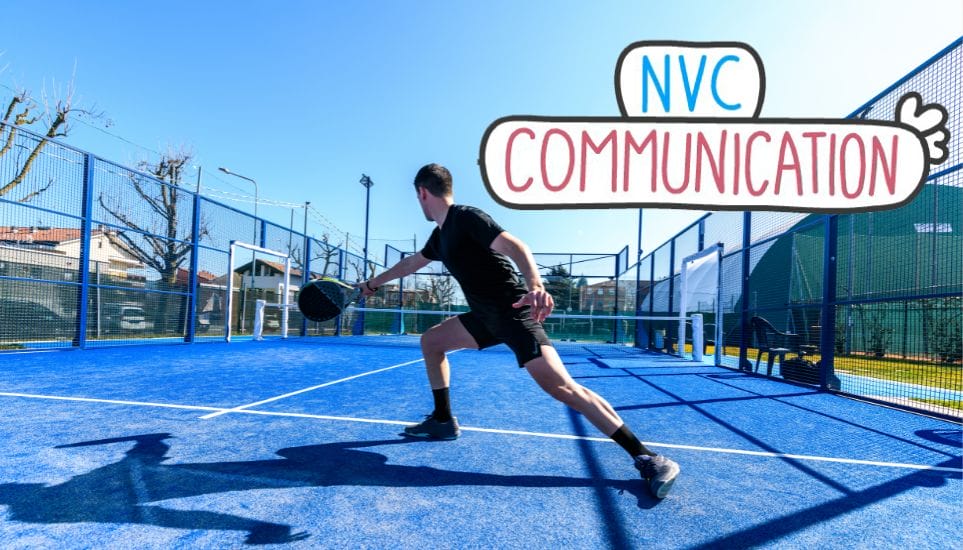When I play padel, I have very high expectations of myself. I spend a lot of time improving my game, limiting the mistakes I make, and trying to learn the more complex shots. BUT, I make a lot of easy mistakes. Sometimes I try to make a harder shot than I know how to control, and sometimes I just miss. In both cases, I get angry at myself. Here are a few words I hear myself saying:
- LOOSER!
- Look at the ball, idiot!
- Bend your knees!
- Why do I never learn?
- I’m stupid – why did I do that?
- I know I shouldn’t do that, yet I do it anyway.
- OMG, good that I didn’t video type my game today.
To sum up: What’s wrong with me?
I go through this self-criticism about 25 times per game. Hmm, yes, I probably make 25 mistakes in a make. You can imagine that something that should be fun isn’t the best for my self-esteem after all that self-trash talk. So how can we use self-empathy in this situation?
Do you remember the self-empathy process?
- Observe what you say to yourself.
- Ask yourself what feelings were involved in the situation (before the mistake occurred)
- Ask yourself what needs you tried to reach when you made a mistake.
- Ask yourself what needs you failed to meet.
The first step, we’ve already done. (I can still hear myself saying it.) In the second step, I noticed it was more difficult. What feelings were present in the situation? After some hard thinking, I wrote down the following:
- I’m stressed because I wanted to win the point
- I’m stressed because I usually get fewer balls to me than my teammate, so I want to make a difference when I get the ball.
- I’m stressed because I want to show that I can. (I believe there is something deeper here, something about being accepted in the group. I can’t really explain it, but I think it goes way back in my life.)
What needs did I try to meet?
- I want to contribute to the team.
- I want to show that I can
What needs did I fail to meet?
- To feel that I have developed my game and all training pays off.
- Show that I learn from my mistakes
- To be patient
Usually, I feel angry, frustrated, ashamed and even worried when I miss the point or make a mistake. Today, when I played. I tried to see the errors for what they were: missed chances to contribute to my team.
Instead of being angry and frustrated, I felt disappointed and sad for the misses I made (yes, I did miss sometimes today too.) Normally, my temperament takes the better of me when I play, and I might lose focus. As a result, I make more mistakes. Today, I managed to stay quiet. I didn’t trash talk myself. Instead, I tried to focus on the next point and improve it.
With this changed approach to my mistakes, I managed to have more fun on the court. I didn’t lose my temperament, and I think I made fewer mistakes. In any case, it felt better after the game, even if we lost.
 English
English Español
Español Français
Français Português
Português Svenska
Svenska